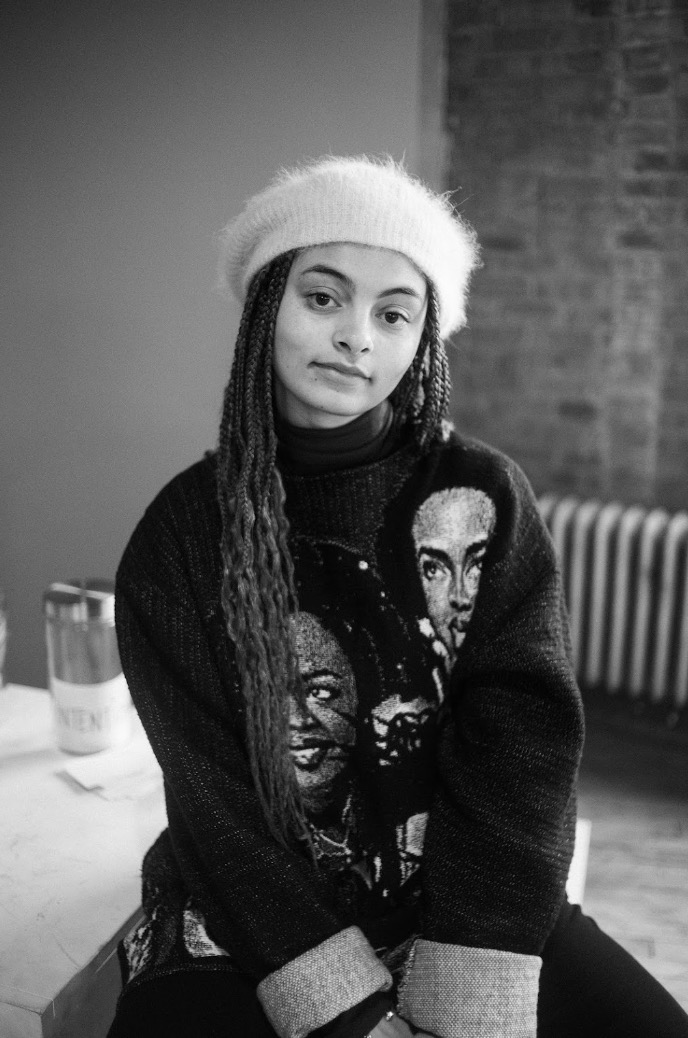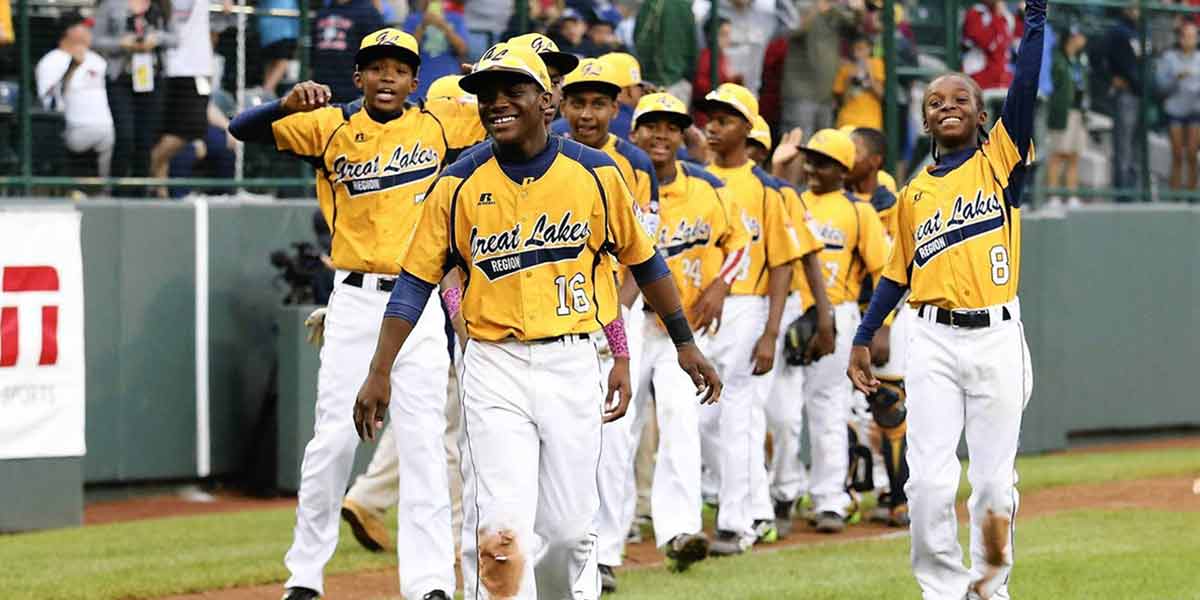For the 61st Chicago International Film Festival (CIFF), the programming leaned into what it does best: exhibiting a diverse, compelling variety of films. With the slogan “Find You Genre,” audiences of all niches are welcomed and can access something familiar or dabble in something new. This year, with the curated “City/State” program, CIFF platforms homegrown stories. Each film under the umbrella discusses entirely different themes, yet in true Chicago fashion, they are all true to unearthing the complexity cultivated in this city.
“One Golden Summer” takes us back to simpler times, when Chicago collectively rejoiced around the winning Little League Jackie Robinson West (JRW) team from the South Side of Chicago, the first all-Black team to rally through the end-of-summer tournament. Like any kid, the only narrative I cared about at that time was the batter’s count and runs scored. Despite its overall positive light, we see the shadows more clearly in this production. “One Golden Summer” is not a nostalgic picture; it’s a correction of a national narrative that honors the integrity of children, now grown, and the legacy of a community.
Director Kevin Shaw balances present-day interviews with archival television footage to craft a narrative of what occurred, while also giving us a peek behind the curtain. The only questionable choice in the retelling is the off-putting AI-generated animations; this decision, luckily brief, feels at odds with the overall authenticity the filmmakers are aiming to uplift. Nonetheless, with each triumph, with each win that brings us closer to the culminating championship, there’s the lingering knowledge that Black joy is very rarely widely accepted. The documentary’s ability to evoke every high and low makes us feel as if we are reliving that Summer and Fall of 2014.
Shaw excels at rewriting the script for JRW’s teammates. While he acknowledges their pain and sensitivities that still exist to this day, he also spotlights their growth and resilience. To this day, Josh Houston and his teammates struggle to recount the details of the revocation of their Championship title. Shaw smartly includes an interview with fellow 2014 Little League World Series star Mo’ne Davis; more than 10 years later, even she is in strong support of the JRW team receiving recognition within the museum and archives. Despite it all, the film leaves us feeling hopeful, feeling that no matter what, Chicagoans will always know the true story, no matter the national negativity spewed our way.
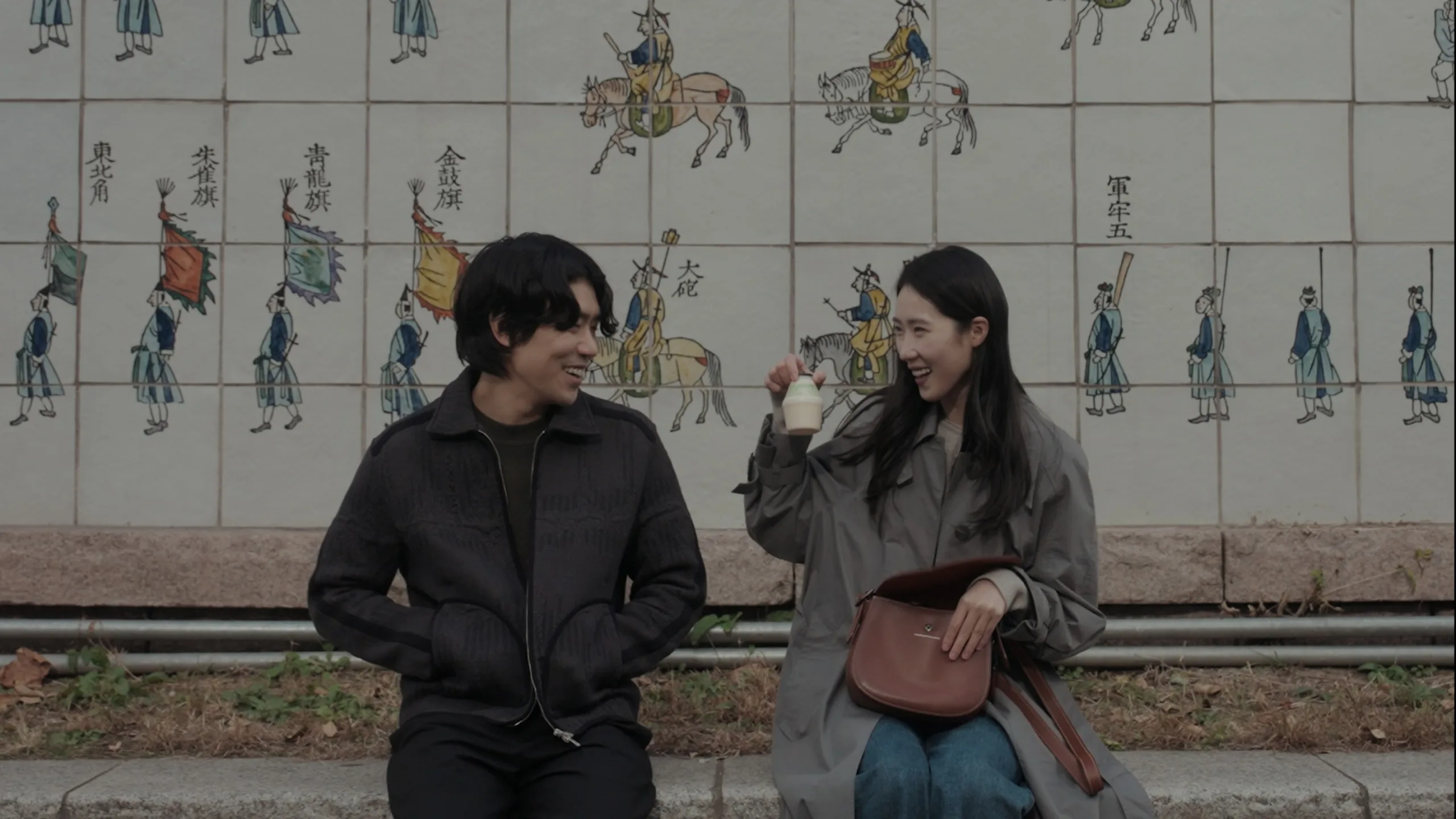
Chicago creator James Choi’s newest film, although short and sweet, is a sentimental snapshot of a soldier’s days leading up to his departure for service. “Before the Call” follows Jinwoo (Andy Koh), a Korean American who returns to Korea to serve in the military amidst a growing political crisis. Despite not being required to enlist, Jinwoo seems to feel some guilt for not participating in the cultural norm, something his father also did.
The film is segmented by letters, a unique way to slow the viewing experience while also explicitly sharing its characters’ inner thoughts. The more visual moments, which are stunning and breathtaking, are paired with a chilling, soul-shaking sound design; we, too, are made to feel conflicted about the decision Jinwoo is making. This inner conflict between the heart and the mind is further complicated by the desire to honor and fulfill a duty to both internal and external forces.
As the days roll by and Jinwoo’s deployment encroaches, his time with friends and his father continues to add rocks to each side of the scale. While enjoying a meal with his friend, Minji proposes a new popular activity taking over Seoul called “happy dying,” where one attends a version of their own funeral to be reborn and start over. By introducing this idea of rebirth or a fresh slate, we almost want to grasp onto this concept as some form of closure for Jinwoo’s upcoming journey. Yet, the existentialism lingers; “whose war is it,” really?
“Before the Call” is not about giving us the answers; it’s about the navigation of ambiguity as the world continues to stop making sense. Choi magnificently fires on all cylinders to create a timely, crucial film that is relatable across cultures.
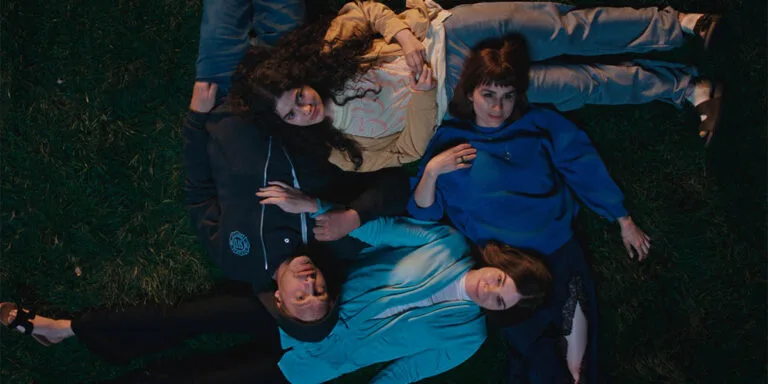
“Adult Children,” a non-traditional family drama directed by Rich Newey and written by his life partner, Annika Marks, is a multi-threaded story told through the eyes of a rising high school senior. At the onset, “Adult Children” flies a bit too close to cliché as the story’s central character, 17-year-old Morgan (Ella Rubin), cannot come up with anything substantive for her college application essay. After eyerolling at this unoriginality, the complex characters waltz in, and each of their unraveling threads is rewoven together through their sibling bonds.
The story picks up when Morgan’s (significantly) older brother Josh (Thomas Sadoski) relapses and needs to return to his mother’s home for interim recovery before heading to a treatment center. This sends the whole family into a frenzy, particularly because of the timing; it’s right when Morgan and her parents are preparing to embark on a long vacation to Europe. As Morgan’s two older sisters, Lisa (Betsy Brandt) and Dahlia (Aya Cash), also return home to support their brother, Morgan’s fear of missing out leads her to stay behind to bond with her siblings that she never really grew up with.
With Marks inserting her experiential knowledge into plot points, each awkward encounter and sibling interaction feels raw and honest. Despite the script having weak moments, born of trying a little too hard to be funny or deep, the chemistry between the characters and standout performances balance out the cringeworthy moments. Unfortunately, the film’s music parallels the writing, making it particularly corny; each needle drop feels like an out-of-touch stepdad taking over the aux while dropping you and your friends off at the mall in 2008.
The heavier thematic thread of what it means to be in proximity to a loved one battling addiction is not at all overshadowed; it saves the story’s purpose while also complementing the other smaller plotlines. Although the film falters on multiple technical elements, I still found myself giggling at its oddities and connecting with the representation of siblings who essentially grew up with different parents due to a significant age gap.
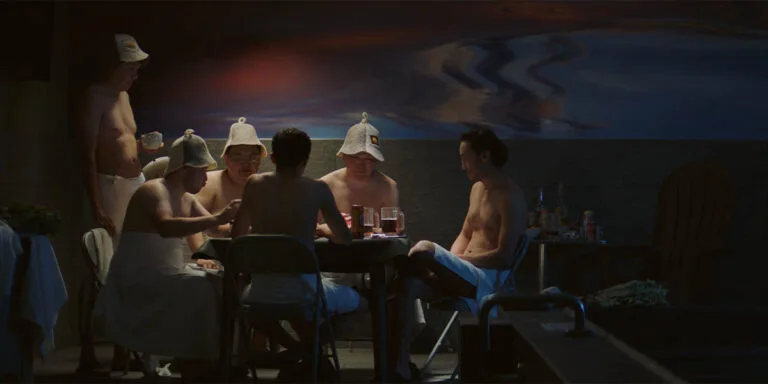
Documentary filmmaker Nurzhamal Karamoldoeva has transformed her lens into envisioning and executing a narrative feature. “Only Heaven Knows” is a Chicago-set slice of life, or perhaps a series of unfortunate events. It’s being dealt a bad hand and going all in, risking it all for a sliver of the sweet life.
The film opens with Eric (Dauren Tashkenbaev), a Kyrgyzstani migrant, at the hour of prayer, before cutting to him calling a colleague for a quick loan. With his smug look, it’s clear there’s no intention of paying it back; a sharp juxtaposition to his religious morality. We soon learn of the end that he’s using to justify these means: he is determined to become a citizen and buy a home for his mother and his wife, Mira (Malika Kanatova).
Currently living in such close quarters, there is off-putting tension between the trio. Eric is “working” all the time, taking him away from home; his mother thinks Mira does not do enough. Everyone seems to harbor a seismic secret, yet we hold on to hope that the light wins. As Eric takes and takes from one too many people, his family is soon drowning in the wake of his gambling addiction.
“Only Heaven Knows” relentlessly layers one big problem after another, and there is no perfect player. Mira is making a mess of her own, but she, too, is simply searching for a better life in a new place. Both Eric and Mira are absent-minded when it comes to considering others. He causes financial strain (that leads to threatened safety); she has an affair within the only sense of community that she has, Chicago. Each character is so strongly written and well performed; despite the dual downward spirals, we understand. At the very least, we sympathize.
Karamoldoeva’s vision and direction are so sharp; it’s evident that her background has provided a strong foundation for nuanced, complex, and caring representations of a real, unique Chicago demographic. The melancholic score from Ulan Moldousupov looms and lingers; the blue-green hue of dawn, or dusk, fills the air and washes each shot. Poignantly, there is less prayer the more the mess unfolds. Assimilation to being an American certainly, always, has its significant expenses.
